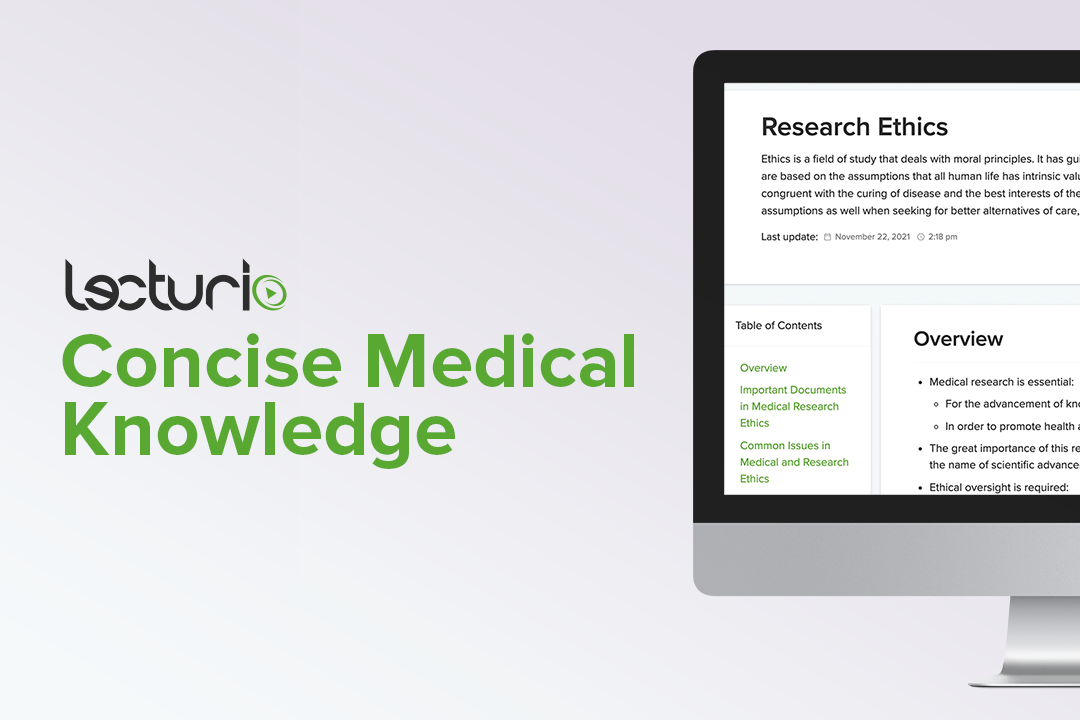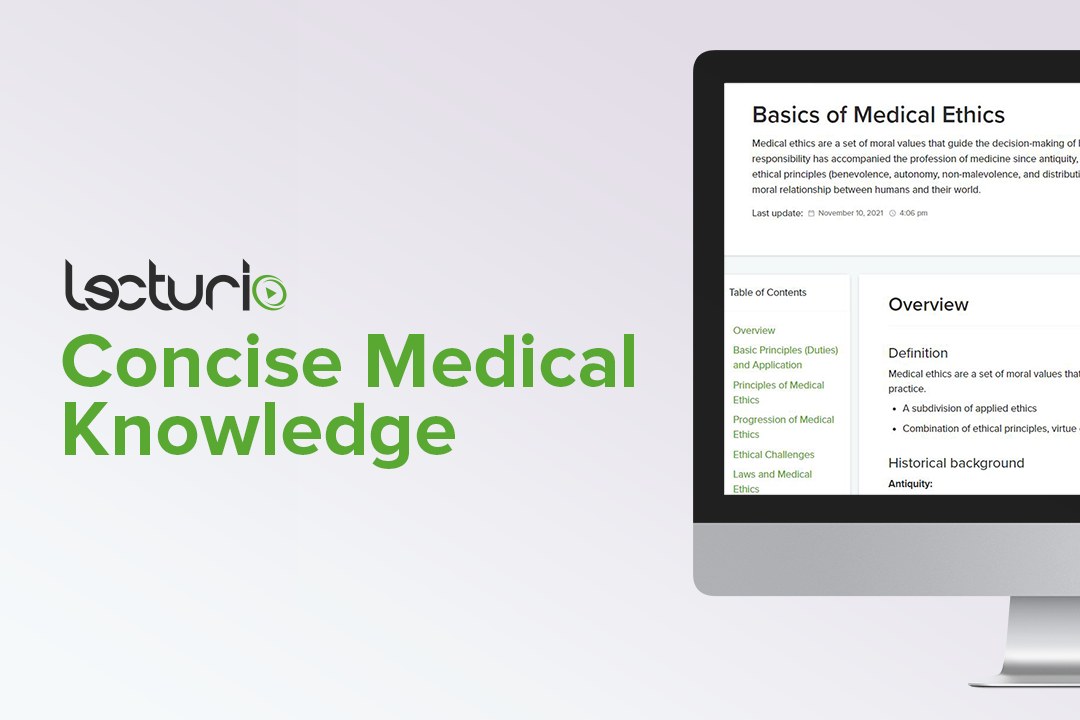Playlist
Show Playlist
Hide Playlist
Informed Consent
-
Slides 15 ResearchEthics Epidemiology.pdf
-
Download Lecture Overview
00:00 of ethical practice rely upon informed consent. It's a phrase that pops up all the time, and in fact even people who aren't in the medical profession have heard the term informed consent, you hear it on TV shows all the time, or in courtrooms. Informed consent requires communicating with subjects or patients and a full appreciation of the potential risks and benefits of the therapy or the intervention that we're measuring. We have to avoid coercion and we have to respect the final decisions of the subject or patient. Have you given any thought to what informed consent really means, hope you have. Informed consent is one of the key pillars of ethics. 00:39 It's exercising autonomy such that permission is given by the subject for a medical procedure. 00:46 It doesn't have to be a medical procedure, but sometimes it is and it is based upon a clear appreciation and understanding of the facts, the implications, the risks, the consequences of the procedure. Do you see how this gets complicated quite fast, can you see where some of the challenges to informed consent might manifest? For example, consent can be expressed, but not internally given. Someone can say yes I agree to undergo this procedure, but they don't really want to, why might this happen, can you imagine some scenarios, may be someone is being pressured by a family member, maybe they want to make the doctor happy, we see that quite often in power imbalances between subject and clinician. Sometimes the understanding that is required to properly give informed consent is not there. This often happens when the subject is poorly educated or there is a language barrier, or again a power barrier. Someone can say, "Oh yes, I agree to this", but they don't fully understand what they're getting into. It's your, our responsibility as researchers and clinicians, to make sure that the individual that we're dealing with has as much as a full appreciation of the facts as we can ascertain. In most research formal circumstances, we acquire informed consent in a written document of some kind, the written document often legally trumps any oral consent. So sometimes someone can say later on, "I didn't consent to that", but in writing they did. That is unfortunate, because we're saying the legalities trump the right of an individual. This is the world we live in. Now some of the elements of valid informed consent to consider are disclosure. You have to disclose the risks if you know them and the risks include physical risks and psychological risks, sometimes social risks. Capacity, have you assessed whether or not the individual you're dealing with has the capacity intellectually to understand the risk that you are expressing. It isn't always an intellectual barrier, it could be a linguistic barrier or a cultural barrier, you have to use language that he or she is capable of understanding. And voluntariness, autonomy must be exercised absent of coercion. Coercion manifests in many subtle ways, it is not simply, do this experiment or else, it could be trying to appeal to approval, "If you do this experiment I'll be very happy", that sort of thing. So even something as soft as that can be considered to be a kind of manipulation, we have to avoid that if we can. 03:19 Let's change gears now and talk about one of the most important new regulations in US law, HIPAA. HIPAA stands for the Health Insurance Portability and Accountability Act, and it came out in 1996. It talks about the management of electronic health records, and now we're into the whole new, brave new world of data management, electronic data. This has introduced a whole host of new ethical challenges to medical researchers. So HIPAA mandates that additional consent measures have to be built into all research projects that involve electronic health records, which ones do, pretty much all new research projects to some extent involve some idea or some capacity or some extent of electronic records, whether it's looking through records, whether it's adding to those records. So written authorization is required under HIPAA from individual before their personal health information can be used for research purposes. Now if someone has already died, and you're doing the research posthumously, you don't require their authorization. 04:22 Now let us talk about Research Ethics Boards. The Research Ethics Board is the group of
About the Lecture
The lecture Informed Consent by Raywat Deonandan, PhD is from the course Research Ethics.
Included Quiz Questions
Which of the following correctly defines informed consent?
- A signed or verbal agreement in which participants state they are willing to participate in a research study after being informed of all aspects of their role in the study.
- A coerced agreement in which participants state they are willing to participate in a research study after being informed of all aspects of their role in the study.
- A verbal agreement in which participants state they were forced to participate in a research study after being informed of all aspects of their role in the study.
- A signed or verbal agreement in which researchers state they are willing to participate in a research study after being informed of all aspects of their role in the study.
- A verbal conversation in which participants state they are willing to participate in a research study.
Which of the following laws was enacted in 1996, which required written authorization from an individual before their personal health information could be used in research?
- Health Insurance Portability and Accountability Act (HIPAA)
- Declaration of Geneva
- Nuremberg Code
- Declaration of Helsinki
- Declaration of Cipher
Customer reviews
5,0 of 5 stars
| 5 Stars |
|
5 |
| 4 Stars |
|
0 |
| 3 Stars |
|
0 |
| 2 Stars |
|
0 |
| 1 Star |
|
0 |





